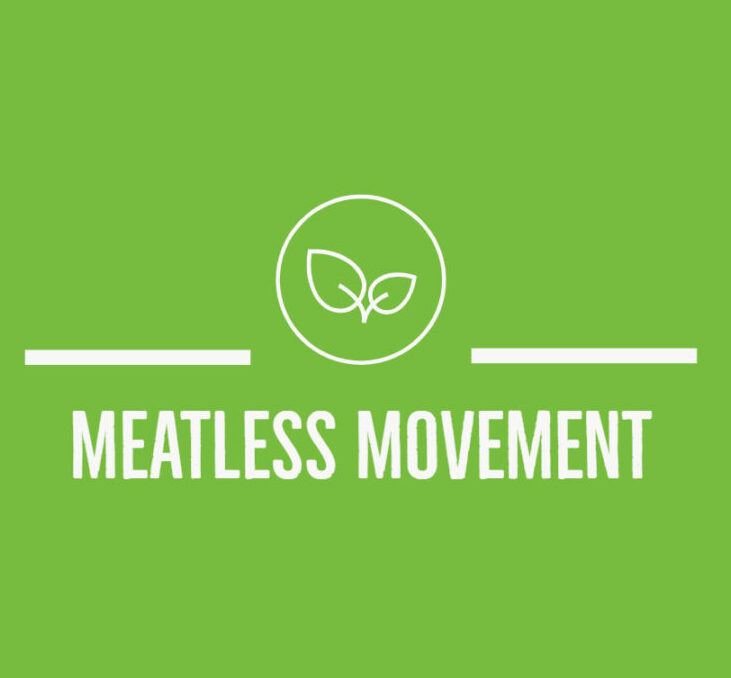Carine has been a vegetarian for over 6 years now. As a vegetarian headed to South Korea, she thought there was going to be nothing for her to eat in this meat-heavy culture. Meatless Movement recently had the opportunity to chat with her. She told us that eating in there as a vegetarian isn’t that difficult at all.
Please tell us more about yourself
Hello everybody, my name is Carine and I am a half-French half-Russian London-born London-raised Master’s student in Korea. I’ve been here over a year and a half and before coming here, spent over a year as an exchange student and research assistant in Japan.
Hello people of the world. How are you all doing? I have SO many places to show you
Carine // 카린 veggie in korea
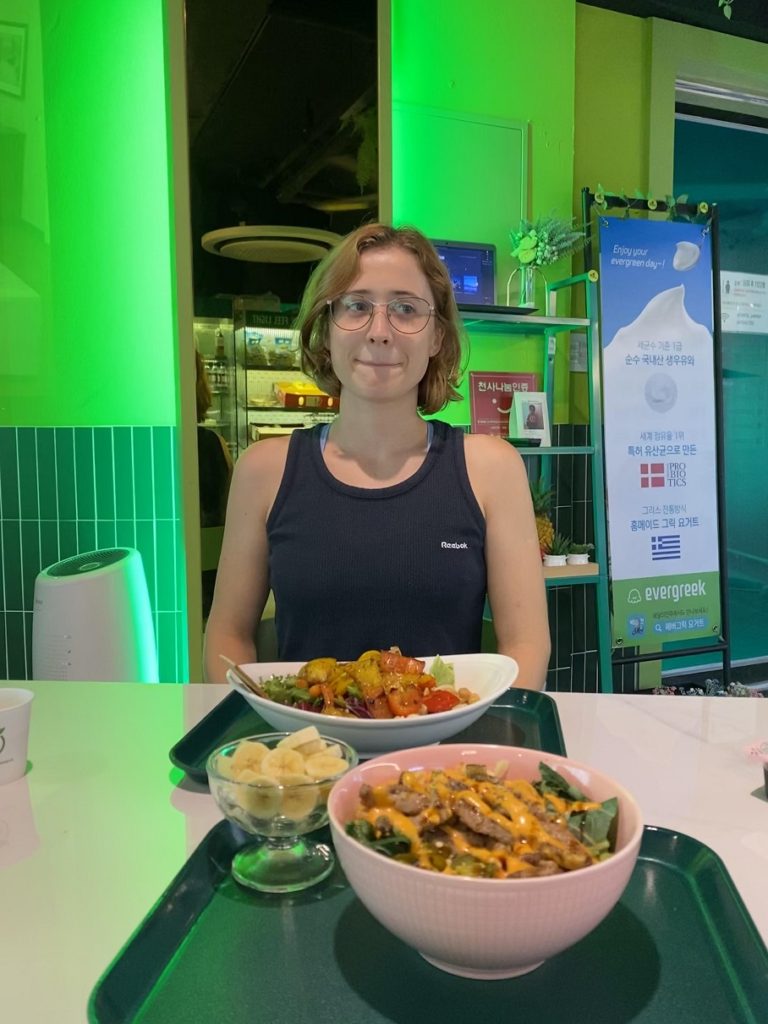
I officially became vegetarian on my 19th birthday so it’s been over 6 years since eating meat or fish.
When I was around 15, I had an (early albeit valuable) existential crisis where I pondered what value my life could have. I realised that the environmental crisis would define our generation but no one was speaking about this problem and so my purpose in life would be to slightly improve this situation. Easy enough, right?
I decided I needed to stop eating animals
Carine // 카린 veggie in korea

Despite this realisation and new goal in life, I did little to change my actions aside from watch a few documentaries, read a few books, and speak to some people about my ‘environmentalism’ (it was now becoming my ‘thing’).
I’d had a vegan friend who had asked me why I hadn’t changed my diet if I was so invested in the environment but I sort of brushed off her question and to be honest didn’t really understand what she was on about. (La la la la la…)
However it was when I started to do more reading and saw the very clear research that the easiest way an individual could reduce their carbon footprint was to cut out meat and fish from their diet that I changed overnight. I figured I especially didn’t want to be a hypocritical environmentalist that was telling people about this looming crisis, was promoting more sustainable policies, but had done nothing in my own life to reflect my own words. I wanted people to trust what I told them and to do that I decided I needed to stop eating animals.

Of course there are a number of options people can take to reduce their footprint, but as a student at that time who was already cycling everywhere and could only afford public transport anyway, I figured an actual commitment on my part would look like making a daily decision to put the planet before my own convenience or desires.
Now the argument can be complicated by eating cheese which can be more carbon-intensive than chicken for example, but starting this action gave me an in towards plant-based diets and since then I’ve tried to eat as vegan as I can.
At that time I was living in Cambridge and in retrospect I can see how easy the transition was. There were a good number of vegans and flexitarians around me, the cafeteria served vegetarian options, and people weren’t that surprised when I’d say I was a vegetarian.
My friends in Japan and Korea really supported my vegetarianism
Carine // 카린 veggie in korea
It’s when I moved to Japan after graduating and then to South Korea that I realised I was in a minority. In Cambridge I happily ate mostly vegan most of the time – I had delicious Linda McCartney meals, a variety of plant-based milks (I was always picking what was on offer – coconut, cashew, almond), Sainsbury falafels and Pret A Manger veggie options were becoming a thing.
But moving to Asia was the time I actually had to decide how much do I want to keep up this lifestyle. By that point I’d been vegetarian around 3 years and had never felt a strong desire to eat meat or fish since stopping.
Moving to Asia changed that. Almost everything contained meat or fish and 99.9% of people were not vegetarian (let alone vegan) and those that said they were were often not as stringent as the people I knew back in the UK. (I have often had ‘vegans’ eat meat in front of me which does make me laugh – but I’m happy they’re at least trying to reduce their meat consumption.)
I told myself often I can just change and eat meat and fish if I want, but I just didn’t want to. I was happy with my decision to not eat meat or fish, it was just convenience that was making it difficult. As a result, I decided to become more vegetarian than vegan to expand the number of choices I had when I ate out. I also try not to pay attention to the soup broth as if I do so, I will have a much more restricted number of options.
I should be honest though and say that my friends in Japan and Korea really supported my vegetarianism so that I could eat out altogether with everyone, often searching across a number of blogs to find a place that could cater to me, calling them to check, and many people send me restaurant recommendations when they find some veggie places. Even though many people are not vegetarian here, they are sympathetic and I feel like I am not alone.
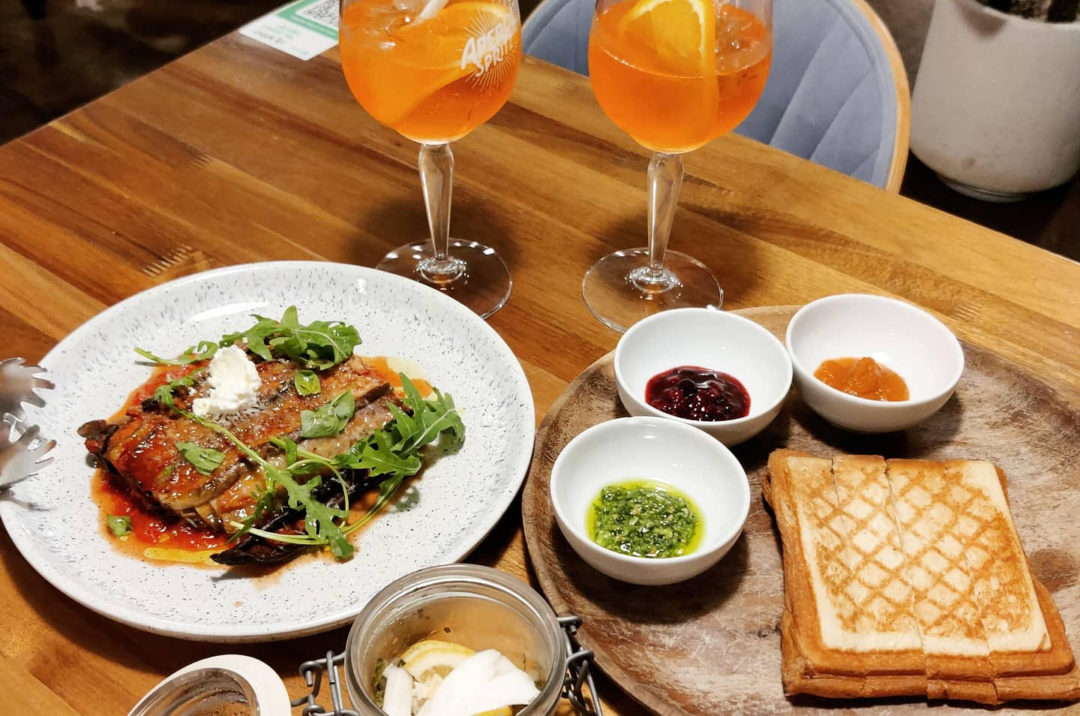
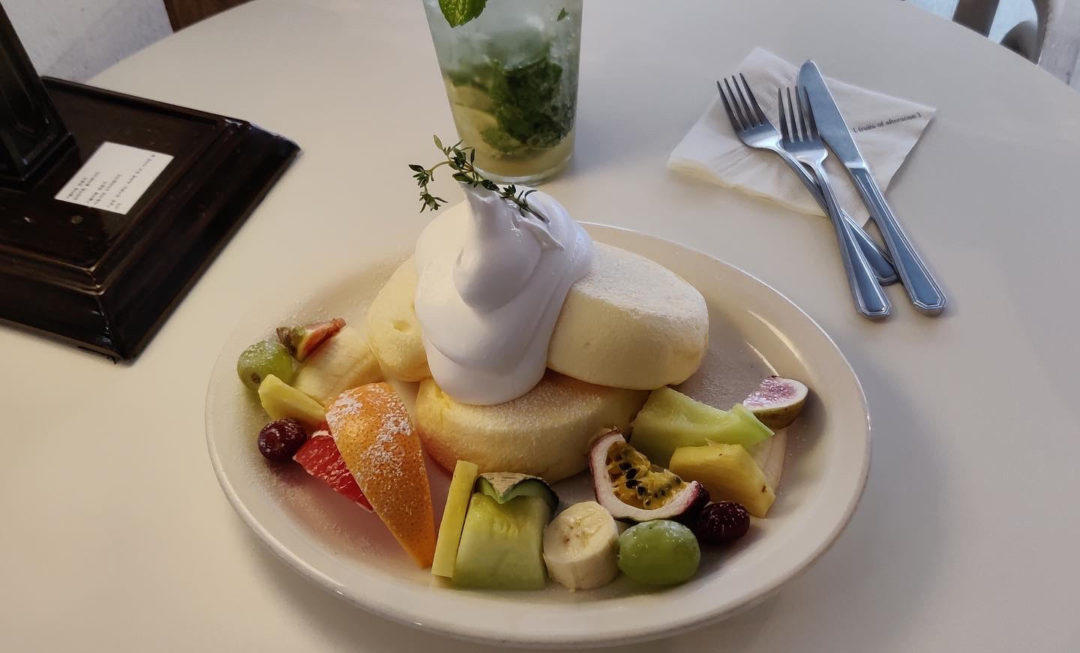
Moreover, in my 3 years of living across Asia now, I’ve seen more and more restaurants offer veggie options – and almost every time you speak to the chef, they are happy to make a special veggie version for you. The cuisine is not as inaccessible as people might have once thought.

When I was living in Tokyo, I would visit this one small ramen store near Jimbocho where the chef would prepare a special veggie ramen for me, telling me he’d added in extra pickles and veggies to make up for the lack of meat. His care and attention really meant a lot to me.
I also had many friends’ families prepare delicious veggie cuisine (almost entirely vegan) because they wanted to show me a warm welcome to their country and culture and were worried I was not eating well enough. I am deeply grateful to these people.
❤️What I love about this place is that as a veggie, you can easily make dishes vegan or vegetarian
Carine // 카린 veggie in korea
I decided to start my instagram account when I moved to Korea having been in Japan for around 15 months and within the first week of my arrival (after 2 weeks of quarantine), I’d met just one vegetarian and everyone told me it would be difficult for me to maintain my dietary choice here. People recounted to me of former vegetarians and vegans they had known here who had since become flexitarians because of the local cuisine.
I took the advice of my one vegetarian friend (order online, these few dishes you can order in the restaurant, expect to eat a lot of fries when you go out as a group) and began the account to document all the veggie options I was eating in restaurants around Seoul and Korea.
At first I thought my posts would be repetitive – pizza, pasta, bibimbap, gimbap, more pizza, more pasta and so forth. But starting this account has forced me to continually find new locations and options for other English-speaking veggies in Korea (and they do exist!).
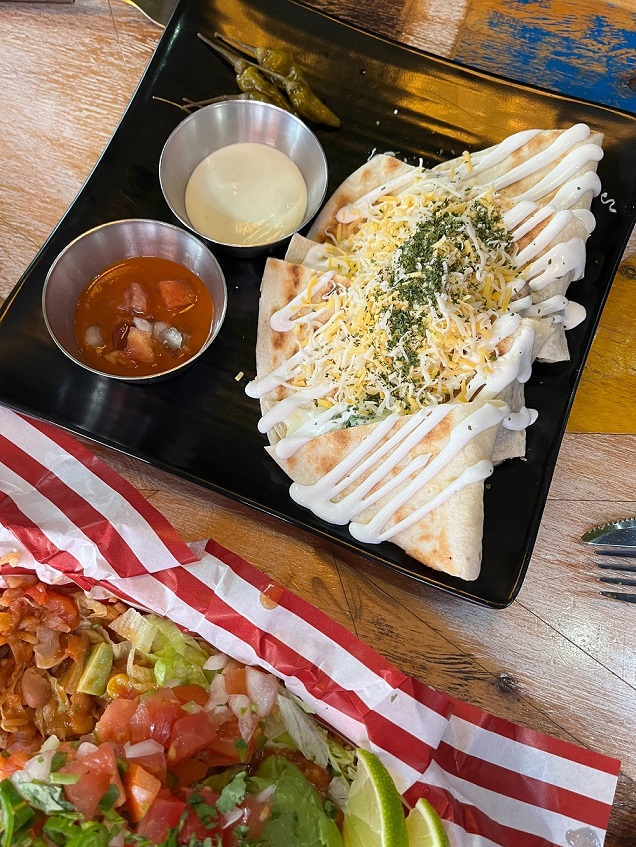
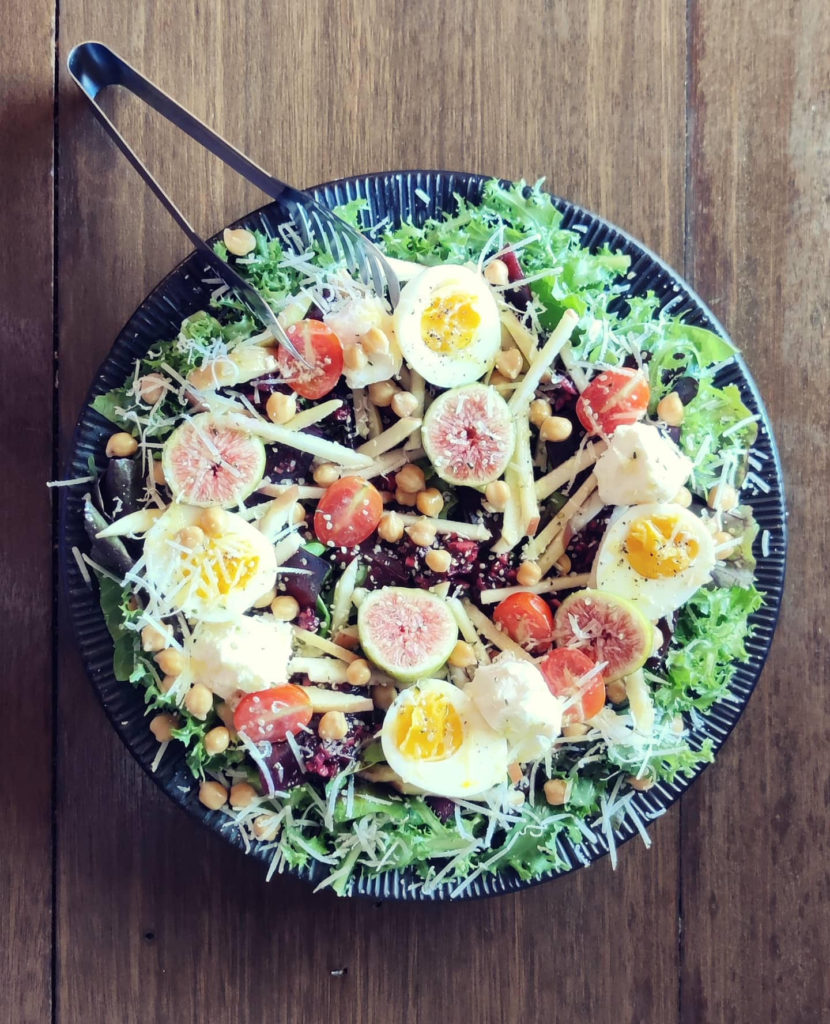
I was never trying to be an influencer but I just wanted to create an information portal for other veggies like me in Korea who want to maintain their lifestyle and not sacrifice on something that is probably an important decision to them.
You can be veggie in South Korea – here are the places I eat out at & the scrummy vegan & vegetarian dishes I order
Carine // 카린 veggie in korea
My favourite restaurants include Monks Butcher (amazing fine dining full of plant-based alternatives), Chorokkteul (the best mushroom tangsu), Bina (the best smoky veg curry), Lotteria (awesome fastfood plant burger), Ssong Thai (the best veg spring rolls), Chickpeace (amazing platter of falafel, houmous, everything), Shake Shack (delicious mushroom burger), Petra Palace (the best middle easten food especially the stuffed vine leaves), Ihengchun (amazing grilled sushi), Seongsu Roun (the best braised cabbage), La Table (amazing pizza), Yo Saen (the best crispy chunky sandwich and yog combo), Taco Amigo (amazing veggie tacos), Monster Place (the biggest bowl of delcious salad plus soy-based Greek yog), The Local Eater (amazing veggie fine dining), Souper (delicious soups), Hansot (amazing fastfood crispy tofu bibimbap), and Nostimo (delicious authentic Greek food).
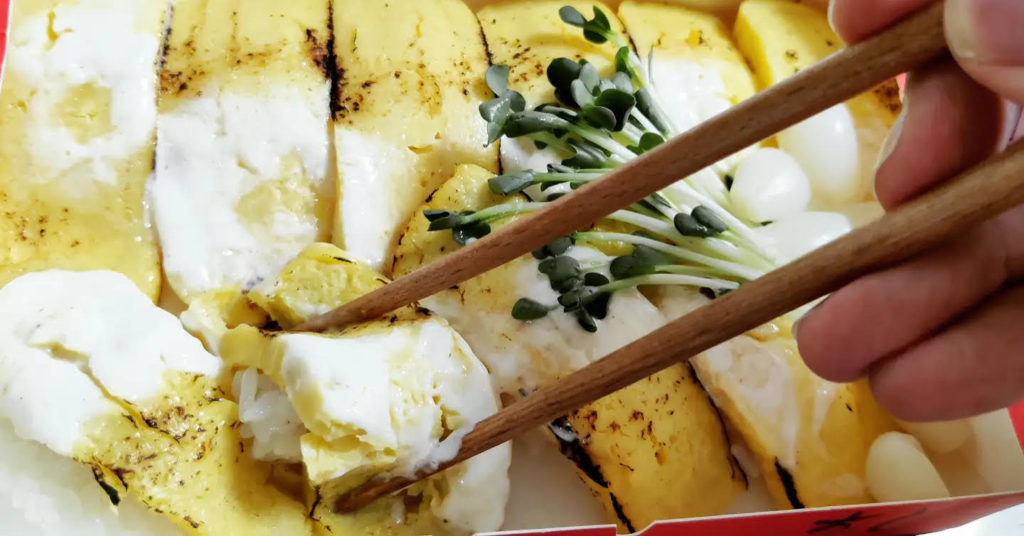
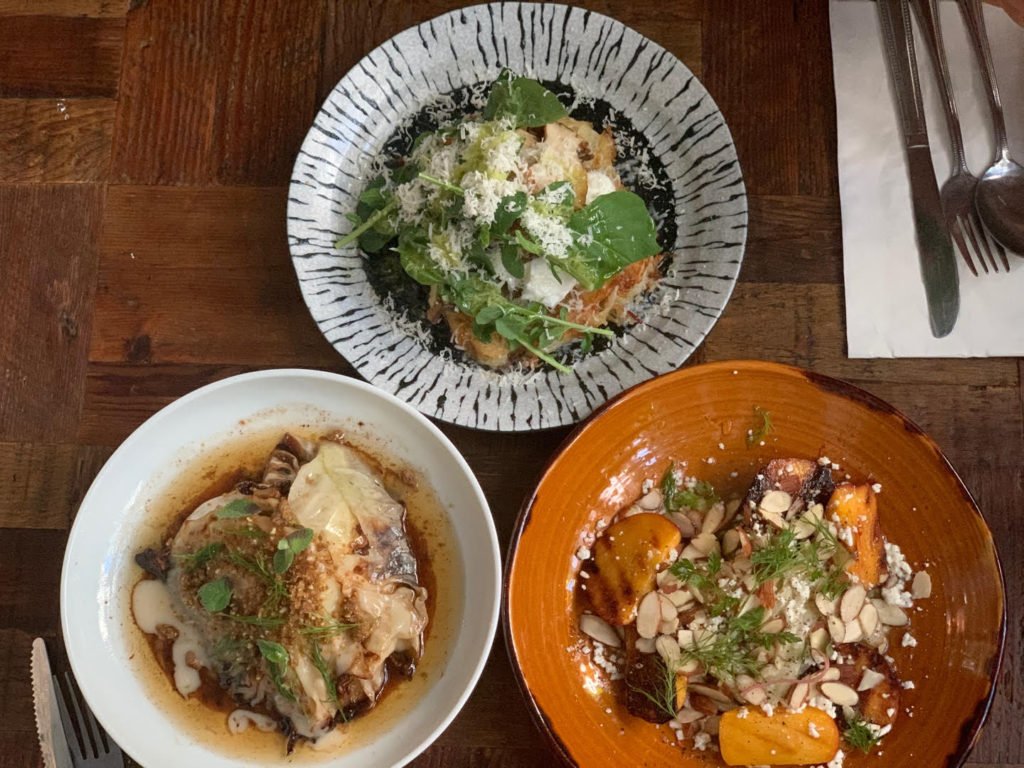
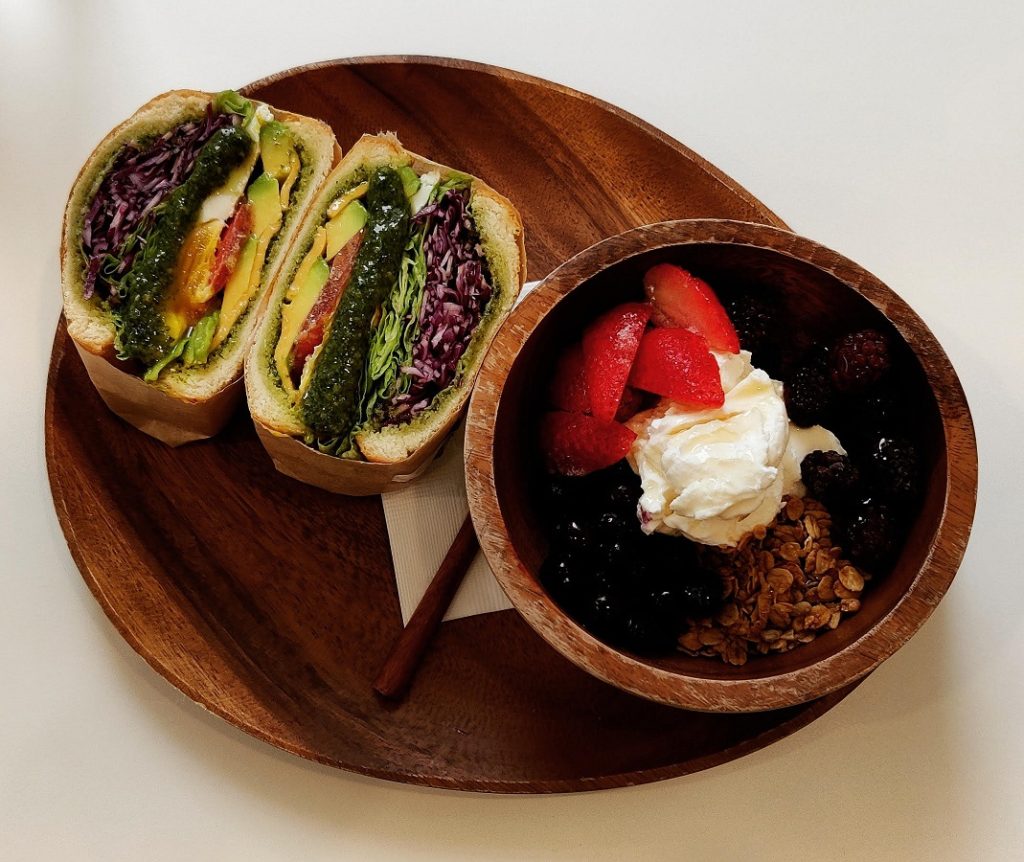
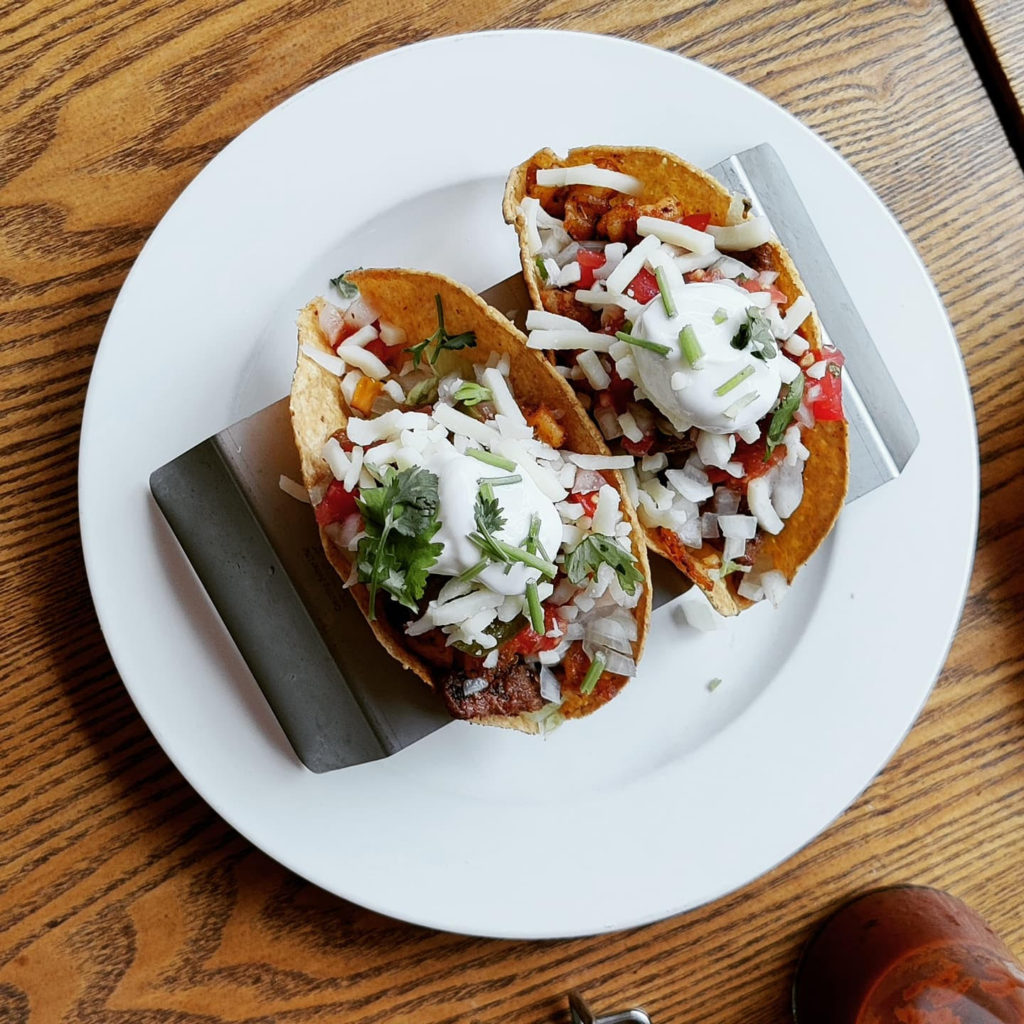
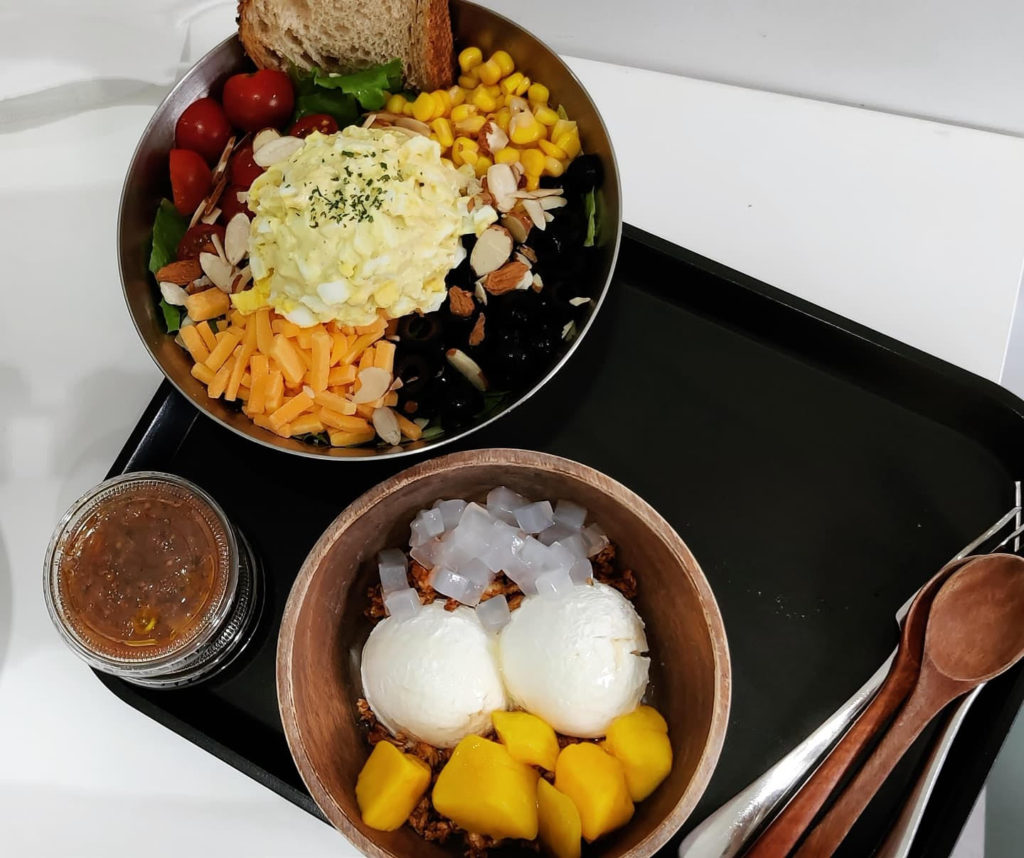
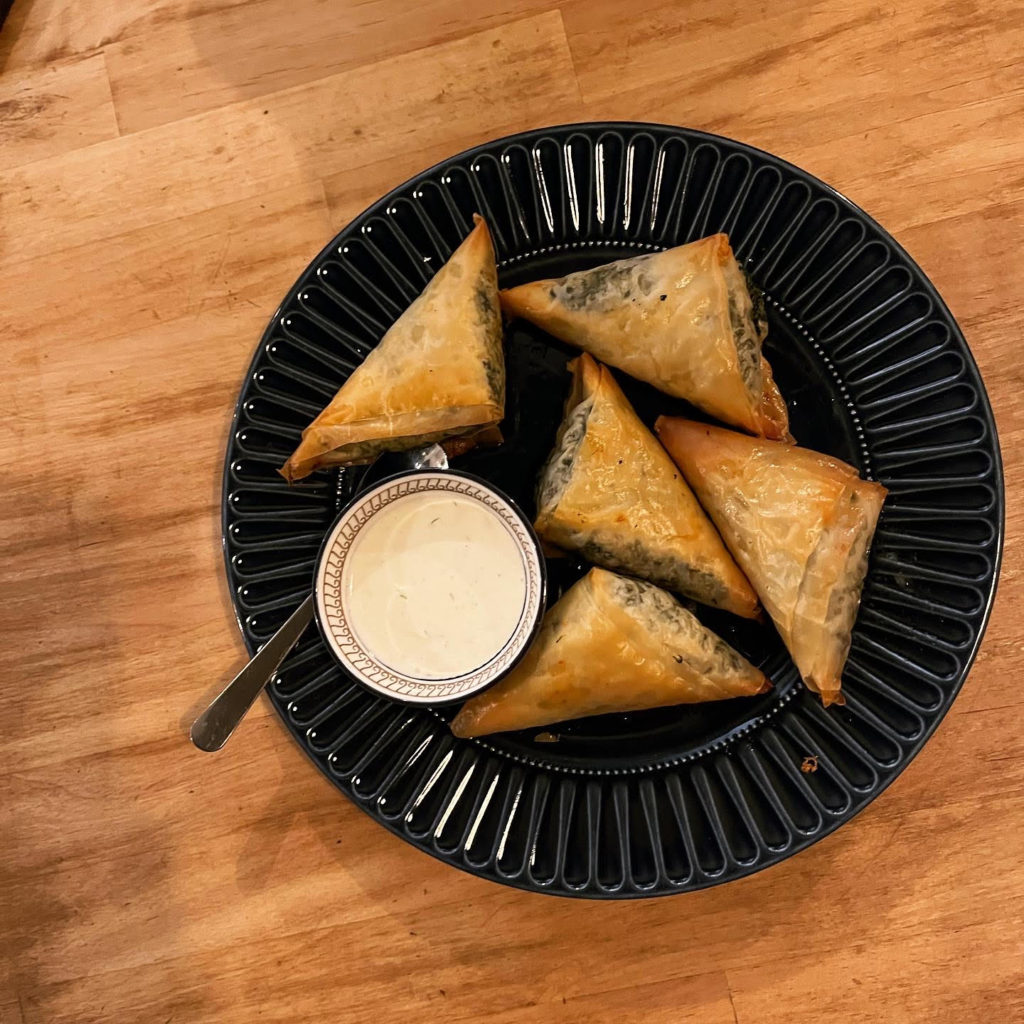
I was never this adventurous in the UK. I took my veggie options for granted and ate pretty regular food. But it’s my vegetarianism in Korea that has made me widen my palette and eat anywhere and everywhere.
I would recommend those places above to any meat-eater and bet they can’t tell me these dishes don’t taste amazing. I have had many friends try these places and subsequently tell me these options are far better to the meat alternative.
There are so many other ways to tickle your taste buds and be healthier and be better for the planet
Carine // 카린 veggie in korea
For those based in Asia, I think the greatest challenge is the stigma you face, because it becomes much more difficult to eat as a group because of your individual choice (it would be different if it were an allergy), and the few cheaply-available veg protein sources (it is tofu galore, but aside from that…).
To overcome this I recommend learning local veggie dishes (e.g. japchae, sundubu jigge in Korea), ordering supplements online, and get to know the online community of foreign veggies in your area. Discovering the Facebook and Instagram community has really helped me during my time here.
I think the greatest misconception about being veggie is that you’ll be deficient in nutrients, the food you eat will be repetitive and boring, and you can’t eat out at nice places. To this I say check out my account and those of vegan athletes! They’re really good at explaining what they eat in a day and you should be able to see with your own eyes (and taste if you go visit…) how delicious it is. It’s from our culture that we think delicious food means a juicy steak, or crispy chicken, but there are so many other (dare I say more interesting) ways to tickle your taste buds and be healthier and be better for the planet.
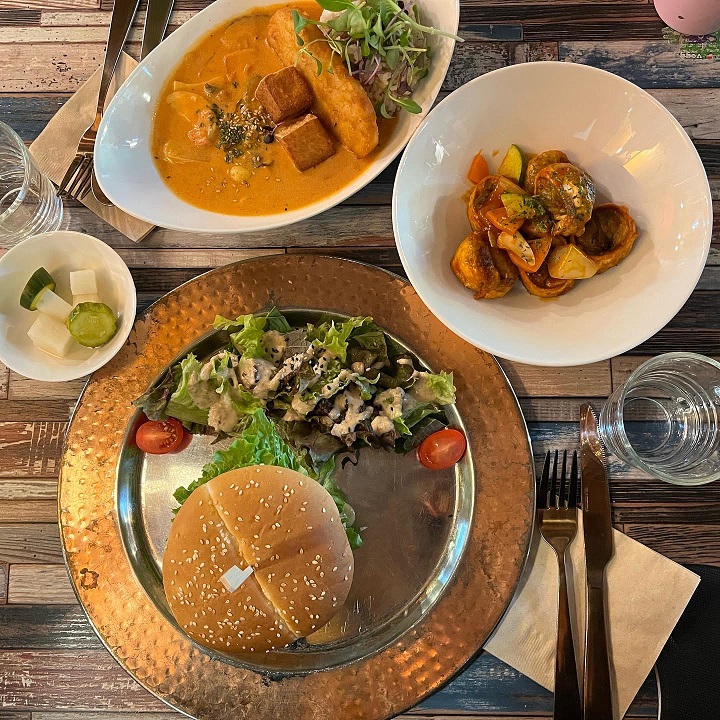
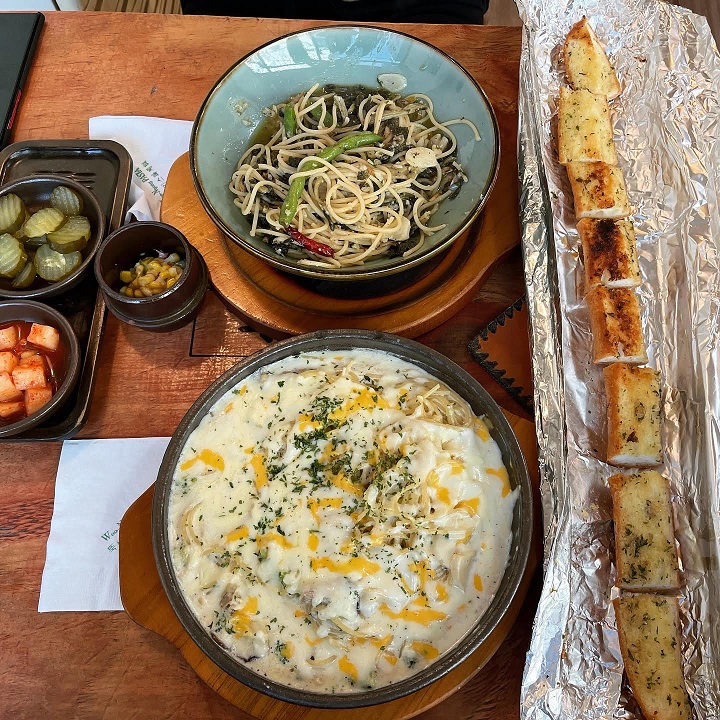
Transitioning to a Meatless Lifestyle
To those just starting out, I always say make it so that it can be your habit. Choose foods that you can easily buy in the supermarket that aren’t too expensive, find local restaurants you can get take out from, and find people who are happy to eat veggie with you (they don’t need to order the same as you just be happy to go to places that offer veggie options).
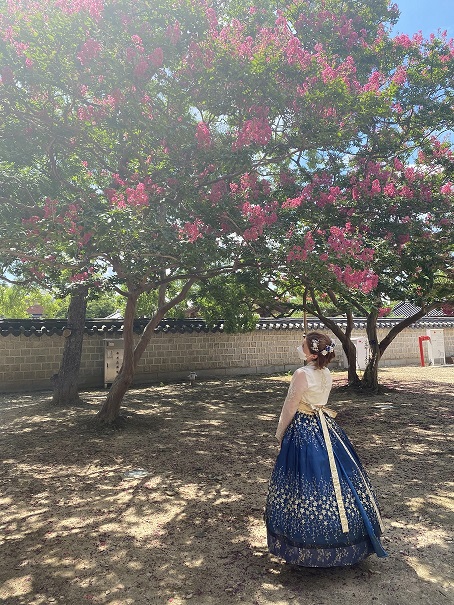
Being vegetarian in South Korea is actually doable, so don’t worry!
Carine // 카린 veggie in korea
If I can make it work in Korea, I’m sure you can make it work wherever you are. It’s not about being rich or eating fortified goji berries to get your fix, it can be as simple as just making one dish a day veggie and then seeing how it goes from there.
Carine // 카린 (she/her)
You can be veggie in SK💪 here are the places I eat out at & the scrummy vegan & vegetarian dishes I order🥘🥗🍜🍙🍔🍲🥟🍛🥙🍝🍧🤤 ps places mostly based in Seoul💃
all images courtesy of Carine // 카린 veggie in korea
